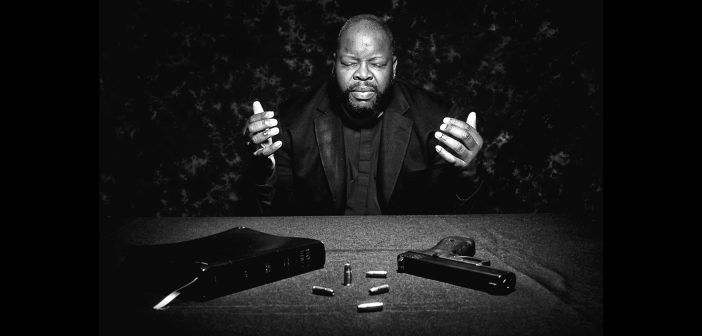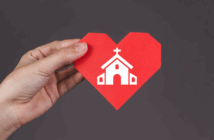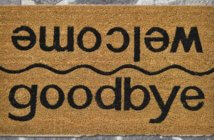Rev. Amy Butler writes that the epidemic of gun violence in America is no longer a matter of opinion or politics; it is a matter of life and death. Because Protestant churchgoers are 40 percent more likely than other Americans to own guns, pastors and church leaders are in a key position to facilitate conversation and organize for change. Rather than just hoping the next horrible incident won’t come, Butler says the church must “do something.”
Just this summer, our nation was stunned by the killing of 49 people in an Orlando nightclub. As we were still grieving that horror, we were rocked by the killing of Alton Sterling and Philando Castille and then horrified again by the assassination of five police officers in Dallas and three others in Baton Rouge. I can’t have been the only one grateful for the distraction of the Rio Olympics and the two-week respite from soul-crushing headlines.
Gun violence in America is no longer a matter of opinion or politics; it is a matter of life and death. We can’t just cross our fingers and hope the next horrific event won’t come. We must do something.
Lately, as we’ve been stunned over and over and over again by our country’s epidemic of gun violence, the obstacles seem more insurmountable than ever. And, if I’m being honest, I must confess that these days when I look at my congregation and my colleagues — when I look in the mirror — I see something different from hopeful optimism. I see that secret-yet-shared question about whether what we do makes any difference at all. I think, along with a lot of others, I have grief fatigue.
But only two months after the deadliest shooting in recent history, are we really saying that as a country we have moved on? Are we really going to wait for the next deadliest shooting, the next slaying of a young black man, the next first responder murdered? One after another, we recite the names we know: Sandy Hook, San Bernardino, Charleston, Orlando. Add to those the names we’ve already forgotten or never heard at all. They make up a mind-numbing litany that has inured us to the shock and horror of our current reality.
We cannot let it continue. My colleagues and I cannot plan another vigil. Gun violence in America is no longer a matter of opinion or politics; it is a matter of life and death. And the solution to grief fatigue is not just to cross our fingers and hope the next horrific event won’t come. We must do something.
Protestant churchgoers are 40 percent more likely than other Americans to own guns, and gun owners can be powerful advocates for speaking up about changing a culture of gun violence in our country. We believe that if we can give pastors and other church leaders the tools they need to engage their congregations, we can have a wide and lasting impact on this problem.
At The Riverside Church, our something is to train faith leaders, especially millennials, on how to talk with their congregations about gun violence and organize for change, hosting God and Guns: Millennial Faith Leaders Address Gun Violence, October 6–7, 2016. Attendees don’t have to agree on the solutions to gun violence, only that doing nothing is not an option.
Looking at your community, at your sphere of influence, what is the something you can do? We all need some words of hope, and so I share this prayer:
It helps, now and then, to step back and take a long view.
The kingdom is not only beyond our efforts, it is even beyond our vision.
We accomplish in our lifetime only a tiny fraction of the magnificent enterprise that is God’s work. Nothing we do is complete, which is a way of saying that the Kingdom always lies beyond us …
We cannot do everything, and there is a sense of liberation in realizing that.
This enables us to do something, and to do it very well.
It may be incomplete, but it is a beginning, a step along the way, an opportunity for the Lord’s grace to enter and do the rest.
We may never see the end results, but that is the difference between the master builder and the worker.
We are workers, not master builders; ministers, not messiahs.
We are prophets of a future not our own.
— “Prayer of Oscar Romero,” by Bishop Ken Untener
We cannot do everything, and there is a sense of liberation in realizing that. This enables us to do something, and to do it very well.
Related Resources:
- Can Church Leaders Help Reframe the Gun Debate? by Lovett H. Weems, Jr.
- Leaders Do What Is Needed by Lovett H. Weems, Jr.
- Easter Vigil Brings the Story of Salvation to a City in Need by Kate Payton
- Communication Strategies for Addressing Conflict by Craig Gilliam






